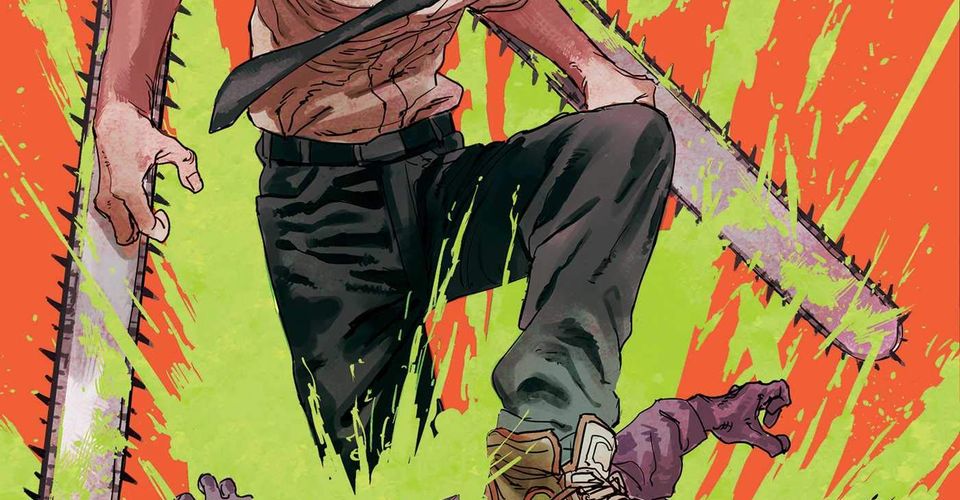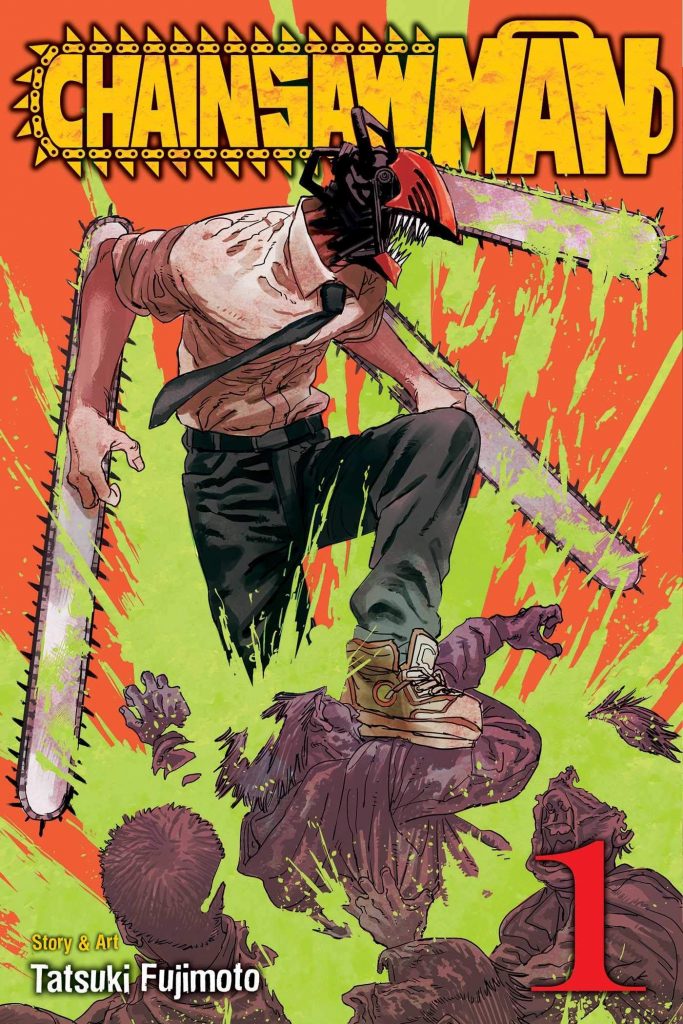Blog
Chainsaw Man Vol. 1 Starts a Future Shonen Jump Classic
One of Shonen Jump’s most hyped-up unused arrangements, the primary volume of Chainsaw Man conveys thrills, spills and shockingly sharp social commentary.
Taken to new heights of ubiquity within the early ’00s by the likes of Tite Kubo’s Fade, monster-slaying has ended up a staple subgenre for Week by week Shonen Bounce. From Blue Exorcist to Devil Slayer: Kimetsu no Yaiba and everything in between and past, stories of young people collecting, chasing or becoming a close acquaintance with rebel spirits, evil presences and other sorts of unpleasant animals has gotten to be a standardized equation for victory. As such, it’s continuously troublesome for makers to cut through the competition. But out of the different powerful fight arrangements as of now running within the notorious manga magazine, none very much hit the way that Tatsuki Fujimoto’s Chainsaw Man does.
Viz Media’s to begin with collected volumes of the manga — which started serialization in Hop in 2019 — could be an exceedingly expected discharge for the magazine’s English-speaking gathering of people. In spite of the fact that Fujimoto’s story started distribution almost a year after Gege Atukami’s Jujutsu Kaisen, which includes a freely comparable preface, it has a completely diverse kind of chomp. Nearly each shonen hero takes after a zero to legend way. More often than not, there’s more than a whiff of Chosen One fate around them, brought on by the circumstances of an unusual birth, legacy or the happenstance of them being gifted/cursed by awesome control early on in life. Chainsaw Man’s Denji might fit this shape on paper, but right from the primary few pages, it’s clear that the form is as it were there to be broken.
At that point comes the genuine kicker: Denji is executed with ruthless effectiveness in the wake of strolling into a snare set by demons camouflaged as yakuza hooligans. As his lord lies wrecked of his own insides in a trash canister, Pochita does a definitive Good Boy thing and breaks himself with Denji’s heart, reviving him as a human-demon crossover. Firing up himself changes the youngster into a trimming tool headed fiend agent. Why? “I love trimming tools!” Fujimoto clarifies in Volume 1’s creator account. From that point, Denji is immediately enrolled into middle class work as formal attire wearing Public Saftey Devil Hunter by Makima, who accomplices him with different individuals from her association’s Division 4, including the serious Aki and the Blood Fiend Power, whom Denji structures an affection disdain bond with.
Fujimoto initially acquired consideration in 2013 with his honor winning presentation one-shot Love is Blind. Before Chainsaw Man, he made Fire Punch, a dystopian arrangement that endured eight volumes. Fire Punch’s nonessential cast, clashed wannabe and subjects of control and harmful force siphon through Chainsaw Man’s blood – blood that splatters and sprays around the page at whatever point Denji’s villain structure is released. Through Denji, Fujimoto makes a licentious perspective fuelled by base longings: desire, appetite, savagery and control. Having made due with a solitary cut of bread a day, Denji isn’t expecting to be the awesome success of the thing; coming from not as much as nothing, his requirements and wishes are straightforward – whimsically so. Thankful for four dividers around him, food on his plate and any kind of organization other than his own, his inspiration in this first volume is simply to get by for enough time to simply will a respectable halfway point with a young lady. (Ideally the baffling Makima, however he’ll make due with Power.)
There’s a wonderfully excited quality to Fujimoto’s handwriting; thickly-outlined lines on singular characters and still minutes pass on the unpleasant edges of Chainsaw Man’s reality, while activity scenes are a scarcely contained blast when the Chainsaw Devil drives guts-profound into an adversary. Thrashing appendages are separated by more fragile jumble work, while spots of blood sprinkles give textural contrast however the shocking turmoil is eruptive in any case. It ought to be unnecessary, as should Denji’s staggering hormonal desires. All things considered, it simply causes Fujimoto’s story to feel refreshingly unfiltered.
Trimming tool Man bears every one of the signs of a standard extraordinary activity arrangement, yet its calmer minutes are the place where its dull heart beats quickest. Purposelessness, unfulfilled aching and sharpness saturate each page, while its hero drains himself dry through his enormous change to make the world a superior spot, and for little else than life’s least difficult and practically each day of joys. In spite of the fact that it’s muddled, in view of Fujimoto’s past work, how long the arrangement will last, it’s totally one to watch.


